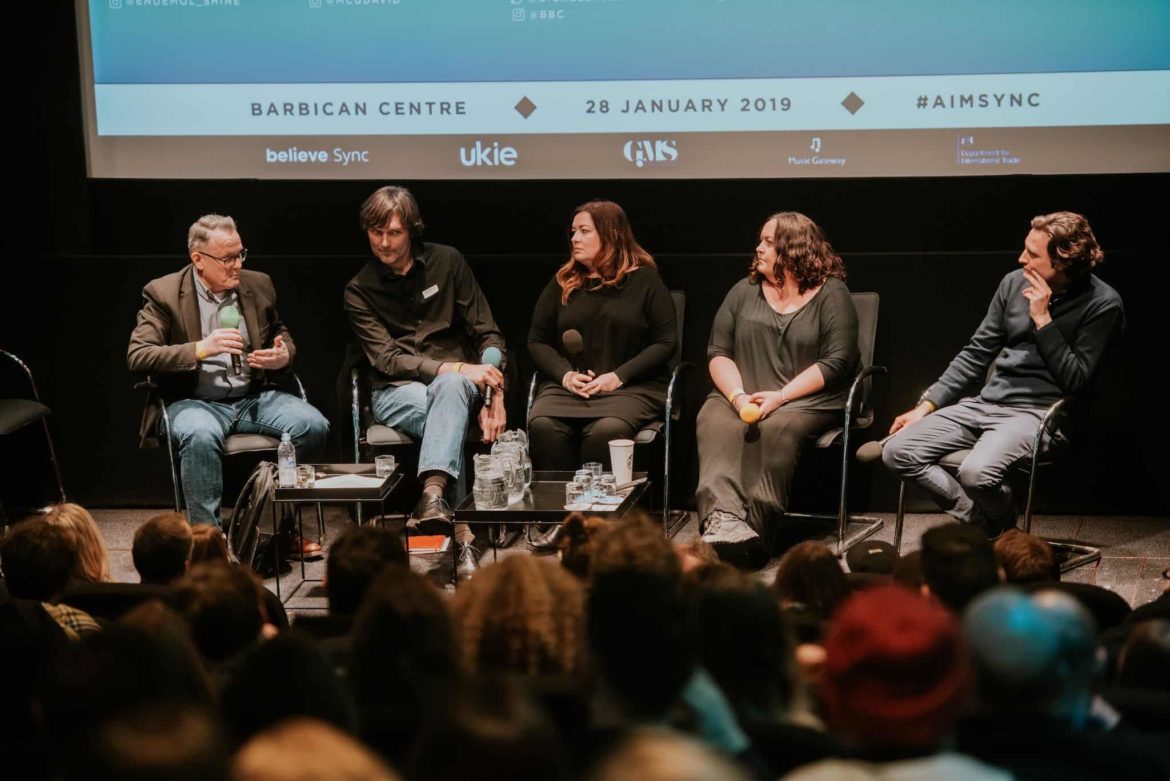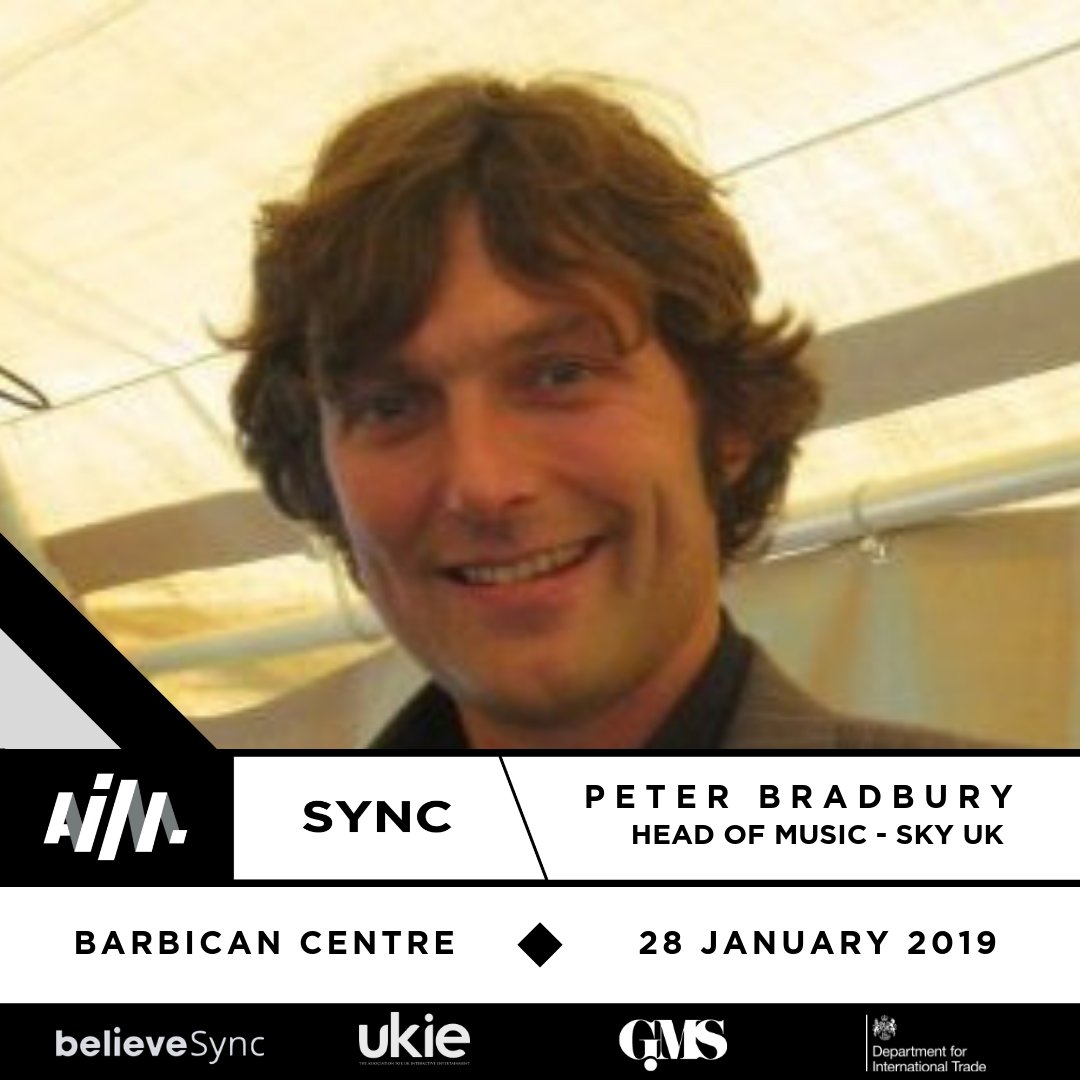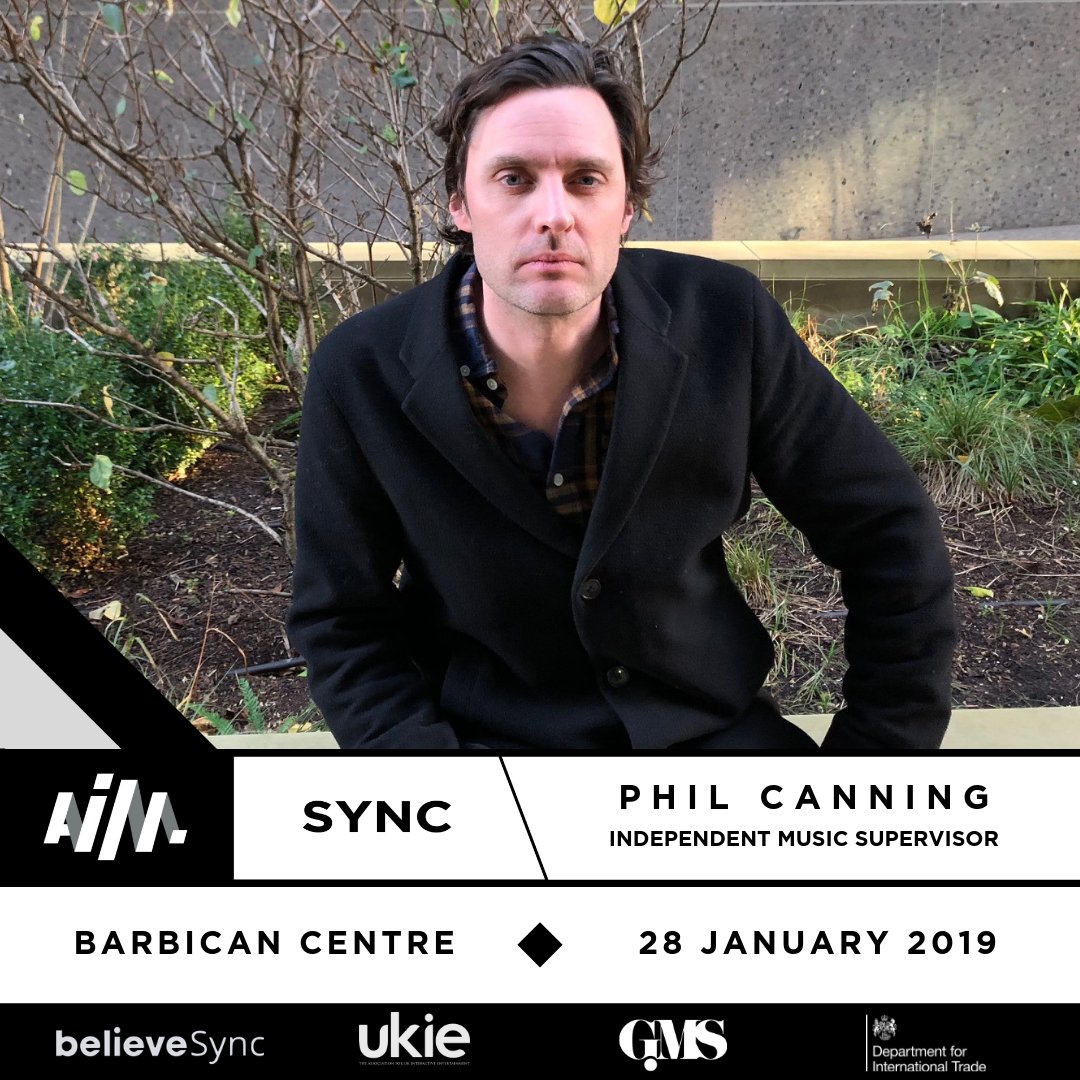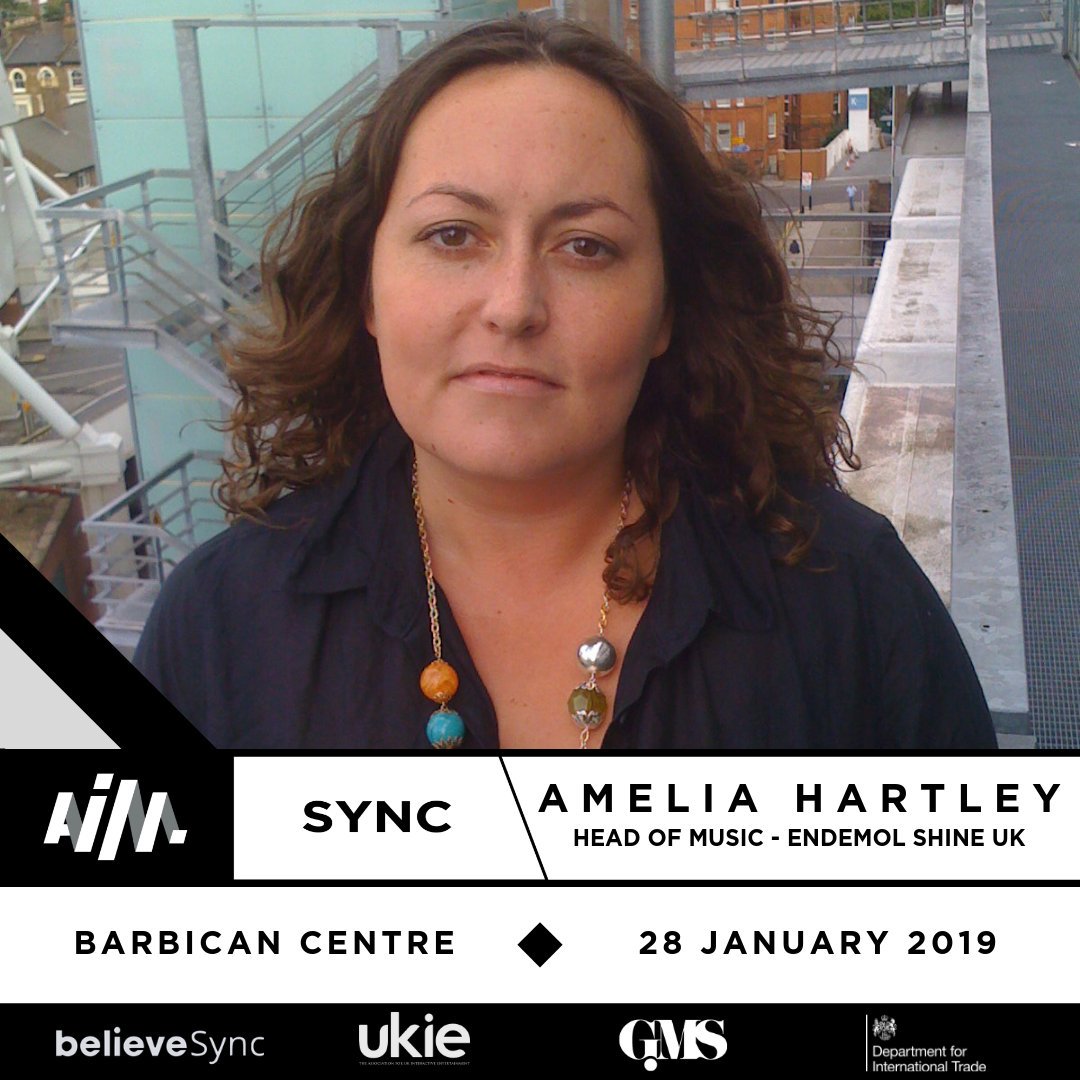Last week saw some of the leading players from both the sync and independent music sectors convene at AIM Sync, a brand-new international conference.
Among the day’s highlights was the ‘In-House Supervision – Broadcasters, Producers and Content Creators’ panel, where broadcaster and production music heads got together to discuss the varying ways in which their productions make their way to market, the music selections and licensing processes involved, and the challenges associated with blanket agreements.
We’ve put together some key takeaways from the panel, expertly moderated by Mute’s David McGinnis, and featuring Amelia Hartley (Head of Music, Endemol Shine UK), Nicky Bignell (Head of Music Licensing, BBC), Peter Bradbury (Head of Music, Sky), and Phil Canning (Music Supervisor, Studio Canal & Universal).
Broadcasters are diversifying
The panel’s first discussion centred around how broadcasters are splitting their output between in-house production, out of house production, and acquired programming, and how the balance is shifting.
“I don’t know the exact percentages and actually it varies depending on different genres”, explains BBC’s Head of Music Licensing Nicky Bignell, “but increasingly more of our content is made by independent production companies”. She estimates that 100% of BBC Dramas last year were independent productions, and that acquired programming is “50% at most, probably more like 10%”. Interestingly, the BBC are also acting like independent producers themselves, she explains, with the recently formed BBC Studios creating content for platforms like Amazon and Netflix.
Peter Bradbury, who heads up Sky’s music department, reveals that all of their programming, be it dramas or entertainment shows, are commissioned out of house. Their in-house production is focused on sports programming across their nine sports channels, as well as a large amount of promos (around 300-400 a month).
The influence of the in-house music team depends on the production
Another point of discussion was how the music selection process works for various productions, and how much influence the panelists have over the music that is actually used. It’s clear that this largely depends not only on what fits creatively, but also on what can actually be cleared within the imposed licensing restrictions.
“We’ve got our own in-house fast clear system at the BBC that checks that a track is 100% MCPS and that it’s covered by the PPL agreement, says Bignell. “We’ve just signed a new agreement where we’ve got a load of artists on a prior approval list, so if we want something cleared quickly we have to check that it’s not on the list”.
“It’s what’s available”, she continues. “More and more my team are getting involved in the music supervision process because as things become more difficult to clear, and as people continue to want quick fixes, my team are there. We’re now working on shows that we’ve previously used out of house music supervisors for, for example the new season of Luther.” Despite these challenges, the BBC typically uses external supervisors for big productions, usually those where music is really important, she clarifies.
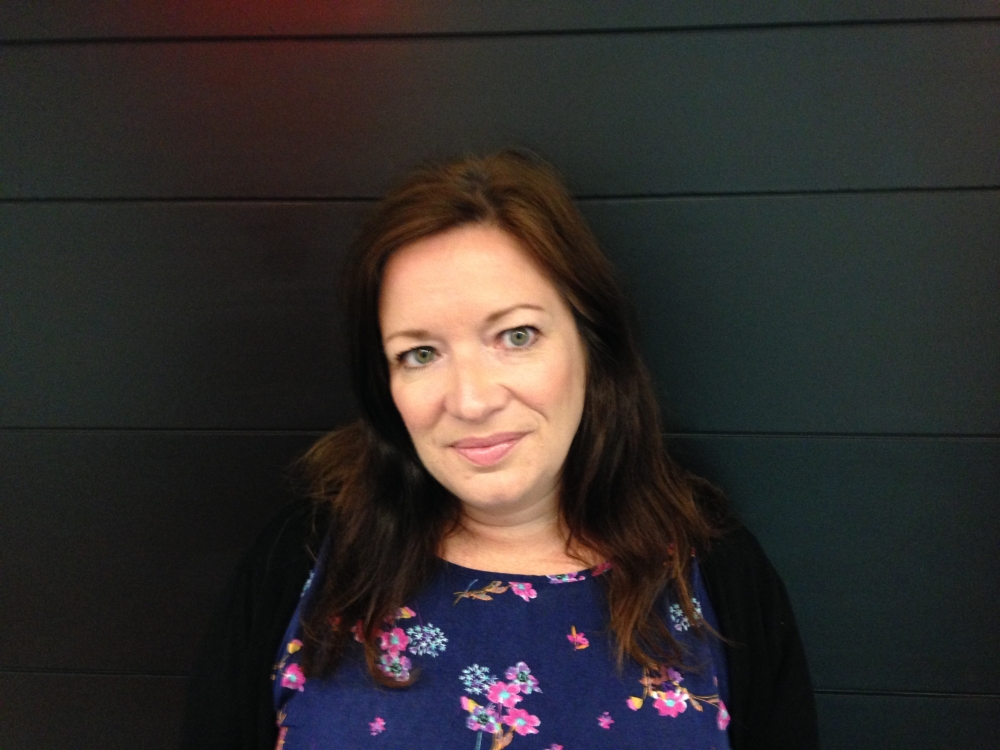
Nicky Bignell (Head of Music Licensing, BBC)
At Sky, Peter Bradbury leads four teams in the music department covering creative, licensing, commissioning and publishing music, and music reporting. “We have quite a lot of control of the music that gets used in our in-house productions”, says Bradbury. “We have a digital library of around three million tracks that is linked to a clearance system, so any piece of music that’s used should basically be in that system. Record companies can deliver digital assets to the system and we can see if their tracks are cleared for those uses.” Whilst his creative team work with sports and promo producers to find music for their productions, they don’t necessarily choose it all. “Some producers love music and want to make their own choices”, he explains.
As Head of Music for Endemol Shine UK, Amelia Hartley music supervises a number of projects including Peaky Blinders, Black Mirror, Fortitude, Curfew, and Turn Up Charlie. “Once the production is up and running you’ve got executive producers, the director and myself, all with different opinions”, she explains. “The idea is that we all work together because actually, no one in the creative process is that much of a dictator. We’re a bit organic and that process goes on for weeks and weeks. And then when you’re in post production it’ll be a good three or four months.”
Phil Canning is the Creative Manager for Film at Universal Music in London, and works with Studio Canal productions. Given that both are owned by Vivendi, the two organisations are encouraged to work together so that there’s more licensing within the group than out, he explains. He echoes Hartley’s sentiments about the collaborative nature of the job, though suggests this is sometimes more of a challenge in the film world, stating, “There’s definitely directors in the film world who will say it’s this song or nothing”.
Production music usage is increasing
One prevalent theme across the panel was how broadcasters and production companies are splitting their music use between commercial music, commissioned music, and library music, with the general consensus being that they are increasingly turning to production libraries.
Bignell explains, “although we do a lot of commissions and we use an awful lot of commercial music, we are increasingly using more production library music because of rights reasons. I’d say the split is about 60/40. We want to have certainty up front.” Licensing complexities involved in selling programmes abroad, as well as time constraints also make library music a more practical choice, she goes on to explain.
“There’s probably two things going on at the same time”, says Bradbury. “The rights restrictions, which are mainly from the MCPS side and not from the record company side, are definitely affecting how much commercial music we use. But productions are also becoming more complicated. There’s more co-productions, there’s more sales around the world, there’s more productions that have three or four partners and you need different media clearances. That puts more pressure on what you can license so you naturally gravitate towards commissioned music or library music.”
Whilst library music is fast becoming an attractive solution, it’s clear that certain productions like big dramas will always need commercial music.
“We don’t really use any library music in the big dramas, unless it’s something very specific like weird lift music”, says Hartley. “The rest of it is either score, because we have some really great composers, or commercial music. Most of the time commercial music is really editorially necessary.” Using commercial music is always more of a challenge when dealing with BBC or Sky programming because of the framework that’s been put in place by the collection societies, she goes on to explain, whereas platforms like Netflix have generous budgets which allow for a lot of commercial music.
The future of the blanket license is in a state of flux
Also up for debate on the panel was whether or not blanket licenses are still viable in the face of increasingly complicated production outputs and new technologies/platforms.
Bignell, who is responsible for negotiating the BBC’s blanket music licenses, explains that these challenging negotiations occur every few years with annual costs reaching tens of millions of pounds. But while the BBC and Sky still use an enormous amount of music under these blanket agreements, it’s apparent from the challenges previously discussed that this may not be the best solution moving forwards.
“I think broadcasters are going to start questioning whether blanket licenses are actually viable”, says Bradbury. “We pay millions for blanket licenses and there will be a turning point when we go well, actually, why don’t we just buy music on an almost point by point basis?”. He goes on to explain that Sky is currently using the American model and licensing through rights holders for the dramas that they are currently working on. “That’s only really happened over the last few years and it’s because these productions need to be sold to lots of different platforms”, he says.
“It just gets more and more complicated by the second”, explains Hartley, who has the “insane” task of keeping track of all of the different blanket licensing agreements, exclusion lists, and so on. “The blankets are disintegrating slightly due to pressure from US publishing companies who aren’t very happy about it because they haven’t got them, which puts our blankets here under massive pressure.”
Platforms like Amazon and Netflix, she explains, are presenting completely different ways of licensing which are now seen as possible alternatives. “It will be interesting to see where it’s going to settle, whether they end up keeping the blankets or not. There’s no such thing as a UK produced programme anymore – everything we do gets sold whether its Masterchef or Peaky Blinders. Everything is worldwide these days and our desire to use music is never going to go away, but trying to use it just gets more and more complicated.”
